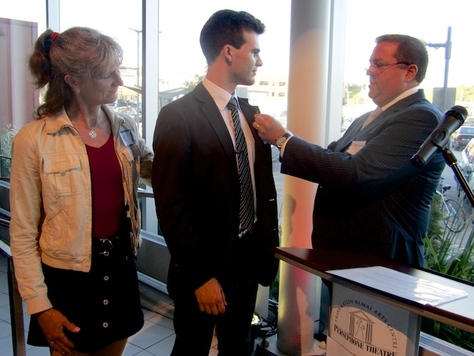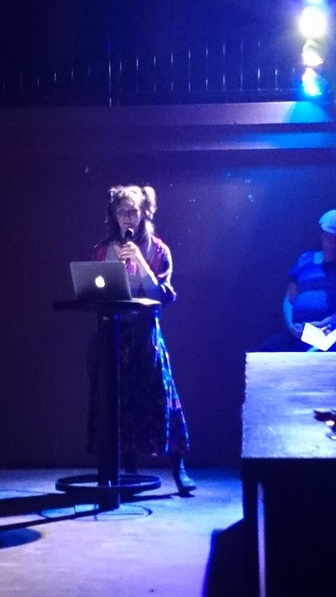 My son, on his 20th birthday, being sworn in to our Union.
My son, on his 20th birthday, being sworn in to our Union. I'm very proud of my son. Apart from being a wonderful young man, and my only son (he has a sister, of whom I'm also very proud), he's my greatest ally. From my earliest times of gender confusion and right through my whole transition, he's remained steadfast in his acceptance and love. My daughter has also remained supportive, but I think not so comfortable. This makes sense. She's four years younger than her brother, and I was exploring my femininity as she was going through puberty.
Transition can be hard for families. In my case it has been hard for my dad, who won't speak to me, and to my siblings. It was difficult for the mother of our children. Though we had problems from before, it was my transition which proved the catalyst for her asking for a separation. We remain on reasonable terms, and perhaps one day we might return to calling ourselves friends.
In the summer of 2013 I started a radio show on a community radio station, with gender diversity as its theme. I had great plans, but I think I was too ambitious for my collaborators. A new person who joined us exacerbated our difficulties, leaving me feeling attacked and unsupported, and after only 5 episodes, I retired from the show. I did shows featuring different trans* identities, local health professionals, and a transgender music group. I had begun preparing for shows about two spirit identities, about sex, and about the families of transgender people. For my show about families I interviewed my son. I had planned to make the family interviews anonymous, so I interviewed him as though I were a third person, asking him about his parent. I recently came across the interview, and I thought it was too good to let it go unheard. He suggested I post it in my online journal. It's 16 minutes long. I invite you to listen to our interview:
Transition can be hard for families. In my case it has been hard for my dad, who won't speak to me, and to my siblings. It was difficult for the mother of our children. Though we had problems from before, it was my transition which proved the catalyst for her asking for a separation. We remain on reasonable terms, and perhaps one day we might return to calling ourselves friends.
In the summer of 2013 I started a radio show on a community radio station, with gender diversity as its theme. I had great plans, but I think I was too ambitious for my collaborators. A new person who joined us exacerbated our difficulties, leaving me feeling attacked and unsupported, and after only 5 episodes, I retired from the show. I did shows featuring different trans* identities, local health professionals, and a transgender music group. I had begun preparing for shows about two spirit identities, about sex, and about the families of transgender people. For my show about families I interviewed my son. I had planned to make the family interviews anonymous, so I interviewed him as though I were a third person, asking him about his parent. I recently came across the interview, and I thought it was too good to let it go unheard. He suggested I post it in my online journal. It's 16 minutes long. I invite you to listen to our interview:


 RSS Feed
RSS Feed